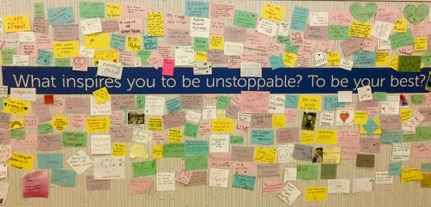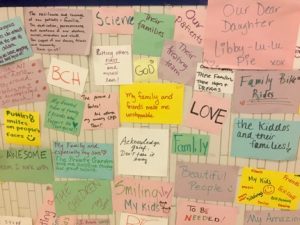Name: Ariel Li
Class Year: 2020
Major: Psychology
Internship Placement: Child Bilingual Research Institution of the Chinese University of Hong Kong
My ongoing internship at the Child Bilingual Research Institution of the Chinese University of Hong Kong has been greatly regarding and so far has been an exciting experience! As someone who has a multilingual background myself, I found the ongoing projects at CBRC to be very fascinating. Moreover, since current projects are focused on young children between the ages of 1 to 6, I’ve been working with adorable bilingual children who never cease to amaze me with their language abilities and laugh-out-loud cuteness. Though I am a psychology major at Bryn Mawr, and not familiar with the area of linguistics, I’ve been able to work with a lot of information and data that are connected to some degree with cognitive and developmental psychology, which I have found to be very interesting. Prior courses I’ve taken at Bryn Mawr, including Developmental Psychology and Research Methods of Psychology, have also helped me understand a lot of the things I’ve learned so far at CBRC.
Ongoing bilingual research projects at CBRC consists of the following components: First is the gathering and obtaining of data; in this case, it would be the language and speech materials of children. Second would be the recording and transcription and digitalization of the material. After that, the data would need to be analyzed, programmed and stored for further use. In some cases, the language components of the child’s speech would need to be compiled and organized accordingly. Therefore, my share of responsibilities so far as an intern has included, but has not been not limited to the following:
- My favorite part of the job is recording language material with children: along with a colleague, we would visit a bilingual child in their home and do video recordings and audio recordings of the child while we play with them. The sessions would be as conversational and as casual as possible, and most of the time we could not help laughing about how adorable the children were.
- After the fun part of the job was completed, the video recordings would need to be reviewed. I would need to use a special software and transcribe all the speech that happened in the video recordings and program them into the software with a specific format used for linguistic analysis.
- After transcription was completed, I would use the programming commands in the software to organize the information embedded in the transcription. After some coding and commands, I would be able to decode the grammatical structures of the child’s speech, and then organize them; Excel software is used here to provide a more straightforward view of the frequency of specific words in their speech.
- Analysis of vocabulary is also a part of my job; as the research is mostly longitudinal, I would help compile and compare the vocabulary of the children at different age periods in order to observe the overlap and improvement of use of vocabulary.
- If needed, I would also work with other Ph.D. or grad students to design research tasks that focuses on child linguistic and language abilities, in aid of expanding ongoing projects.
My internship also includes other miscellaneous jobs including the translation of documents and materials such as the guidelines and tutorials for using the software. I also help with narration and voiceovers of the English tutorials.


